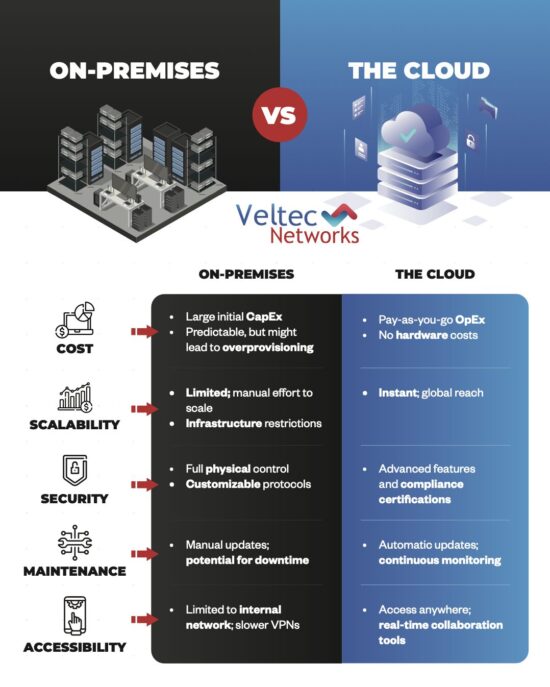29 Key Questions To Ask Your Next IT Company In San Jose
Selecting a company to maintain your organization’s technology is one of the most important decisions you can make. You must find the most competent and reliable IT support provider in your area.

But how do you know if the IT company you’re considering is right for your business?
Don’t just pick a company off the Internet because they’re the closest one to you. Do your research to find out if they are truly qualified to protect your data and meet your organization’s unique IT needs.
Questions About Their Company
-
How Long Have You Been In Business?
You don’t want to be an IT company’s first client. No matter how knowledgeable they are, without experience, they won’t be able to deliver the quality of services you need. Don’t let someone learn the trade with you as their guinea pig – find a seasoned pro.
-
Where Do You Provide Services?
You’ll want to know where they are based out of, and whether they’ll provide direct on-site support or primarily remote support. The latter isn’t a deal-breaker, but some IT companies will rely on remote support for issues that could merit from direct assistance. If they’re too far away for it to be financially feasible, they may hire one-time local technicians, who may not offer the same level of expertise, or know your business, as well as they, should.
-
Will I Have A Consistent Point Of Contact?
You need to know whether you’ll get the same person every time you call, or an ever-rotating team of new support technicians. While the latter may be knowledgeable about IT in general, they won’t have the level of familiarity with your organization and support history that can contribute to an optimal support process.
-
How Big Is Your Company?
This is a “goldilocks” situation – you don’t want an IT company that’s too big or too small. If they’re too big, you’ll just be a number, a small fraction of their revenue that they can afford to let down from time to time. If they’re too small, they may not always be able to provide the responsiveness and focus of support that you need to get your IT problems addressed in the right time frame. Look for a company with 20-30 employees for the ideal size.
Questions About Their Support
-
Do You Provide Remote Or On-Site Support?
As discussed above, both types of support have their pros and cons. The important thing is that you know what to expect. Will you be hosting an on-site technician every time you have a problem? Or will you only ever hear from your IT company over email? Ideally, it’ll be a combination of both.
-
Do You Offer RMM Services?
Continuing on from the last question, you’ll want to check about Remote Monitoring & Management (RMM) services. These software tools allow IT companies to provide support for issues and manage ongoing maintenance in a non-intrusive manner – perfect for organizations that don’t want IT personnel around their premises.
-
Do You Specialize In Support For Specific Industries?
Ideally, you’ll find an IT company that understands the field of work your organization operates in. General IT companies that offer the same standard tech tools are a dime a dozen – make sure to find one that knows what your pain points are, how to support your line of business applications, and understands where your industry is headed.
-
Do You Understand Compliance?
This is a must-have – as a healthcare organization, you’re subject to HIPAA, your compliance with which depends on your IT. Make sure that the company responsible for managing your IT has knowledge of and experience with HIPAA compliance.
-
What Is Your Expected Support Response Time?
You should know what to expect in the event that you file a support ticket – will it be addressed the same day? Within an hour? Many IT companies will have some form of Service Level Agreement (SLA) to detail what you should expect in terms of response time.
-
How Does Your HelpDesk Work?
Make sure to find out how their support process is carried out. Do they have an online portal? A toll-free phone number? A support email?
-
Do You Use A Call Center?
Larger IT companies may subcontract a call center to handle their support requests – this isn’t necessarily a deal-breaker, but guaranteeing quality of support and the expertise of the person you’re talking to can be difficult when you’re not actually talking directly to your IT company.
-
Do You Have An Emergency Support Process?
There’s a difference between “My computer is slow today and I don’t know why” and “All our systems are down!” – does the IT company in question expect you to use the same support process for both? Find out if they have a priority or emergency response line.
Questions About Their Services
-
Should I Anticipate Any Additional Costs Beyond The Monthly Fee?
Don’t let yourself get nickel-and-dimed. Get the details of any additional fees and charges put in writing ahead of time. If your IT support is supposed to be all-inclusive, then you shouldn’t be paying a premium for after-hours support, right?
-
Will There Be A Preliminary Consultation?
Be wary of any IT company that’s willing to sign an agreement without meeting you first, visiting your business premises, and learning about what you do. No IT company, no matter how experienced, can expect to provide optimal support if they don’t know anything about you.
-
Will You Consult On Scaling And New Projects?
If you’re planning to open a new location, or fundamentally change the way you operate, you’ll want to have expert insight on your technology. Your IT company should be willing to offer advice on how to scale your IT and how to manage a new project.
-
What Does Your Consultation Include?
Does the IT company in question have a documented process? Or do they wing it and hope for the best? Verify how they go about consulting before you make any decisions.
-
Is Your IT Audit Complimentary?
Again, you don’t want to end up paying extra fees that you could have found out about sooner. If the IT company is going to conduct an audit of your systems, make sure to find out if it’s complimentary, or if you’ll need to budget for it.
-
Do You Offer Encrypted Email Services?
Email is undoubtedly one of your primary means of communication. The best way to secure your email is with encryption – and if you’re hiring an IT company, they should be able to handle that for you.
-
How Much Should I Budget For The Next 3-5 Years?
Another part of evaluating their consultation service is to find out what they think IT capital expenses (i.e. new hardware) will cost you for the next few years. What’s their reasoning? How does their estimate compare to others?
-
How Often Will You Update Our Systems?
Updating software is a fundamental part of IT maintenance and cybersecurity best practices. Your IT company should be handling this on a weekly basis, but they should also be able to speak to how they will avoid imposing downtime on you and your staff while these updates are carried out.
-
Do You Specialize In Technologies From Specific Vendors?
Find out if, by working with this IT company, you’ll be limited to one brand of technology. If you like having a range of options from which to choose for your organization, then don’t allow yourself to be pigeon-holed by an IT company that only understands one type of tech.
-
Will You Manage My Vendors And Third-Parties?
Having your IT company as a vendor liaison is an extremely valuable service, but not all of them are willing to do it. Some will insist you play the middle man between them and the support teams for the technology you use, whereas some will take care of it for you. If possible, always go with the latter.
-
Are You Involved With Any Medical Associations?
This is another way to verify that they understand the industry in which you work. Affiliations with medical associations are a good sign in your search for an IT company.
-
Will You Review My HIPAA Compliance Practices?
Given how much technology and compliance continue to change, there shouldn’t be any assumptions made about how compliant you are. Find an IT company that will take a hard look at your HIPAA practices and take the necessary steps to address any potential non-compliance.
-
Do You Know What A Business Associate Agreement Is?
This is another way of checking their experience with HIPAA. They should know what BAAs are, and why they’re important (i.e., to guarantee compliance with third-parties that access your Protected Health Information).
-
Do You Provide Proactive Services?
This is a fundamental part of effective IT services. You don’t want a company that’s just going to come in and fix problems after they’ve happened. Effective maintenance should help to prevent many problems from occurring in the first place.
-
Are You Familiar With The Software I Use?
As with expertise in your industry, your IT company needs to have an understanding of the software you use. Any line of business applications you use need to be properly supported.
-
Do You Have Any Case Studies Or Client Testimony?
No matter how great this IT company may seem, don’t take their word for it. They should be able to provide case studies from previous clients in industries similar to yours, or better yet, direct testimony as to the quality of their services.
-
What’s The Timeline For Deploying Support?
Should you choose to work with this IT company, how quickly can they get started? Make sure to get a proposed timeline, detailing any downtime you will incur, how much work has to be done on your premises, and any other obstacles that come with the process.
-
Are you starting to get the point?
These are just some of the questions you should be asking when determining which IT company you’re going to work with. You can’t rush the decision – if you really want these services to make a difference in your daily work, you need to verify how they work and what they’re going to do for you before you sign on the dotted line.






